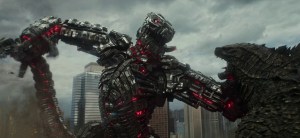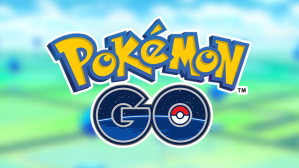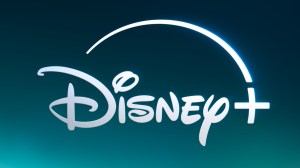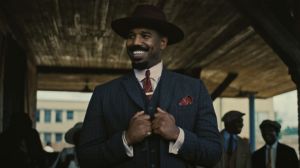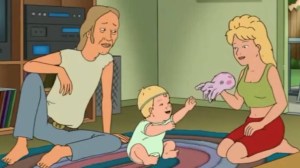
Writer Peter Tomasi left the Green Lantern family of titles following the end of Green Lantern Corps and took up residence in Metropolis, tackling Superman/Wonder Woman in the wake of Superman’s latest power crisis.
Videos by ComicBook.com
The series deals with the biggest romance in the DC Universe as well as the strange working relationship between two of superherodom’s most powerful and established names.
Tomasi joined us to talk about Superman/Wonder Woman, and what the post-Convergence status quo for Superman has done for his approach to the series and the characters’ relationships.
Superman/Wonder Woman is an interesting book because you’re in a position where Superman’s status quo has really changed…
Dramatically.
Dramatically. How much of that were you involved with planning, versus how much was handed to you as a fait accompli from the Superman teams?
No, we were pretty much — me, Greg Pak, Aaron Kuder, Gene, Eddie, John Romita, Jr. — we all came in and had a big conference for a couple of days to talk through story, talk through beats. We all came up with the same stuff together and said, “Okay, let’s go.”
The Superman/Wonder Woman thing to me is interesting because I think a lot of the fans assume it’s temporary, the relationship.
It’s been going for a while now, though. [Laughs]
Well, yeah. As a writer, I have to assume that you just need to treat it like it’s permanent unless and until it isn’t?
Absolutely. In my mind, they’re a couple. Couples, as readers will see, go through ups and downs in a relationship. There’s nothing interesting about reading a book where Superman and Wonder Woman are lovey-dovey twenty-four seven. You’ve got to start to show that there’s problems, there’s bumps in the road, and that makes for good drama.
It’s kind of like Cheers in a way — when Sam and Diane got together, the show ends. All that dramatic tension and all that comedic tension too dissipates once you put the two together. So it’s the kind of thing where they’re together but I’ve got to keep some dramatic tension in the relationship.
See, now I’m just trying to picture it in my head: If Lois is Diane and Wonder Woman is Rebecca, what’s the bar?
[Laughs] I would say Wonder Woman, obviously, is the high bar right now and the way everything’s sort of evolved but look, hey, you never know. There’s always shifting sand underneath all of these characters’ feet, otherwise it wouldn’t be interesting month-in, month-out.
I think one of the most interesting things about the shift in Superman is your book becuase the dynamic between these two characters has changed so much. When you’re writing action beats, has the new status quo for Superman changed the way you have to approach the characters?
Yeah, it definitely has. It’s also been really a B or C story arc where Superman’s kind of getting a bit pissed off that Wonder Woman is kind of being a bit protective of him, trying to get out in front of him sometimes, knowing that he’s a bit more vulnerable than ever. What I’ve built out of that is some tension, where Superman’s saying, “Hey, I can take care of myself,” and she’s saying, “You’re not at the level you were at, so let me take point sometimes. Let me run the gauntlet. You don’t always have to be the first one in the door.”
There seems to be a tendency not just on your part but everybody’s to give him a little bit more of the brash, hot-headed feel of Grant Morrison’s early Action Comics issues, the impetuousness. Was that by design?
What it is for me is that I’ve always loved that brawler, impetuous Superman. When he gets to be too much of a boyscout, when he gets to be too “Everything is black and white,” there are certain things where I like that brawler Superman from the early Action Comics and Superman comics from the ’30s and ’40s.
I was actually going to be the editor on All-Star Superman before it shifted over to [Bob] Schreck for scheduling reasons, and one of the things that we spoke about was that we wanted to see the Superman who could just be that kind of brawler type, who maybe wasn’t able fly or leap as fast or high. I’ve enjoyed doing that, where he’s almost got to sort of be like The Hulk and he’s got to leap from spot to spot and get more speed. It’s more interesting to me; he’s more human, in a way, when he’s more impetuous because there’s nothing more boring than writing a character who’s always thinking perfectly and doing things perfectly.
Did you guys look back at any previous iterations of a kind of powered-down Superman? The Joe Shuster stuff or some of the Man of Steel stuff or whatever?
I know those stories well, having been an editor at DC for many years. It’s funny now in this business, in this climate: a lot of people haven’t read those stories that are 25, 30, 40 years old. A lot of times when you’re a comic fan and you know the breadth of those stories, you have to take a step back sometimes and say, “you know what? There are kids who are 12, 20, 25, 30, and they haven’t read these stories.” So this is new to them.
I go back to that old adage where somebody asked Joe DiMaggio, “Why do you play so hard every night?” and he said, “Because someone in the stands is seeing me for the first time.” That’s how I’ve kind of approached writing for comics: you can’t assume everybody’s read every trade and every story. I look at my son who’s 13 and his friends and all this stuff is new to them. Every story is new to somebody.




